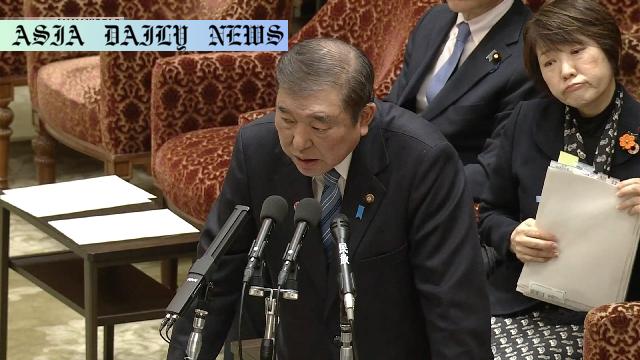Ukraine conflict: Japan’s PM Ishiba vows G7 cooperation and seeks US involvement to address the ongoing crisis with Russia.
Japan’s PM Ishiba Shigeru emphasized G7 unity in addressing the Ukraine conflict.
He urged US involvement amidst tensions after Trump and Zelenskyy’s heated exchange.
PM Ishiba highlighted the importance of achieving peace while avoiding taking sides.

Japan’s Call for Unity in the Ukraine Conflict
Japan’s Prime Minister Ishiba Shigeru has taken a prominent stance in addressing the ongoing crisis in Ukraine. Speaking during a Lower House Budget Committee session, he emphasized the critical importance of ensuring solidarity among the Group of Seven (G7) nations while urging increased involvement from the United States. As one of the world’s leading economic powers, Japan aims to navigate this complex geopolitical issue with a balanced approach, refraining from partisan biases but instead focusing on the overarching need for peace.
The Ukraine conflict has claimed countless lives and escalated tensions between global powers. During Ishiba’s remarks, he addressed the recent exchange between United States President Donald Trump and Ukraine’s President Volodymyr Zelenskyy during their meeting at the White House. This exchange underscored challenges in diplomacy, particularly concerning the visible strain on US-Ukraine relations. Speculations regarding Trump’s perspective on financial burdens and Ukraine’s preparedness further highlighted the need for decisive, unified cooperation within the G7 framework.
The Importance of G7’s Role
The G7, consisting of the world’s leading advanced economies, plays a pivotal role in stabilizing conflicts such as the ongoing war in Ukraine. According to Ishiba, disunity or complacency among G7 members in addressing this issue could have far-reaching, negative consequences. He reiterated that achieving peace in Ukraine is not just about alleviating geopolitical tensions but also about saving human lives and fulfilling moral obligations.
Ishiba particularly noted that it would be “extremely regrettable” if voices like President Zelenskyy’s continued to go unheard or failed to spark meaningful action. He urged nations to set aside divisive politics to focus on pragmatic solutions, such as humanitarian aid and improved diplomatic efforts. As the conflict between Ukraine and Russia persists, Ishiba’s call for neutrality and unity initiated a thoughtful discourse among policymakers globally.
Future Pathways for Resolution
Looking ahead, the success of G7 diplomacy could set a vital precedent for managing similar future conflicts. The resolution of the Ukraine conflict involves multi-dimensional challenges, including territorial negotiations, rebuilding trust between nations, and addressing the humanitarian crisis. Ishiba’s comments reflect Japan’s interest in fostering cooperation and leveraging multilateral diplomacy to address these intricate issues.
Moreover, Ishiba’s resolute statement that Japan has “no intention of choosing sides” reflects prudence in its foreign policy. By advocating solely for peace and collective accountability, Japan positions itself as an impartial mediator in this fraught geopolitical landscape. As nations ponder deeper implications of the Ukraine war, Japan’s approach could serve as a model for diplomacy driven by inclusivity and mutual respect.
Commentary
Prime Minister Ishiba’s Pragmatic Diplomacy
Prime Minister Ishiba’s recent statement on the Ukraine conflict underlines the significance of collective efforts and mutual understanding in resolving global crises. By emphasizing the need for G7 unity and US involvement, he tactfully places Japan in a position of leadership, while maintaining an impartial stance. His comments about refraining from choosing sides reflect a deliberate strategy to prioritize peace and diplomacy above partisan politics, a perspective that resonates well in the realm of international relations.
Ishiba’s perspective also serves as a reminder of Japan’s global responsibility as a G7 member. Despite being geographically far from Ukraine, Japan recognizes the interconnectedness of global politics and the potential ripple effects of prolonged conflict in Eastern Europe. His emphasis on diplomacy over discord demonstrates a nuanced understanding of the broader implications of the conflict, including economic destabilization and humanitarian concerns.
The Need for G7 Unity and US Involvement
The importance Ishiba places on G7 unity cannot be overstated, as disarray within such an influential group could undermine collective efforts to resolve the war in Ukraine. Additionally, his call for US involvement taps into the central role the United States has historically played in global conflicts. While President Trump’s seemingly transactional approach to diplomacy with Ukraine has raised questions, Ishiba’s comments serve as a diplomatic nudge towards maintaining focus on shared values and responsibilities.
By addressing these concerns with tact and sensitivity, Ishiba reinforces the importance of a cooperative, multilateral approach in resolving the Ukraine crisis. His statements align with a growing acknowledgement among global leaders that peace and long-term stability will only be possible through dialogue and unity, making his appeal for diplomatic cohesion even more relevant.
Conclusion: A Compelling Call for Peace
In conclusion, Prime Minister Ishiba’s approach to the Ukraine conflict embodies the values of leadership, diplomatic integrity, and peace-building. His ability to navigate complex geopolitical waters without succumbing to partisan pressures is commendable. As the world watches the United States and G7 respond to his calls for action, Ishiba’s remarks serve as both a challenge and an inspiration for global leaders to prioritize unity and cooperation. The path to peace may be arduous, but with concerted efforts, decisive leadership, and a commitment to humanity, it remains within reach.


